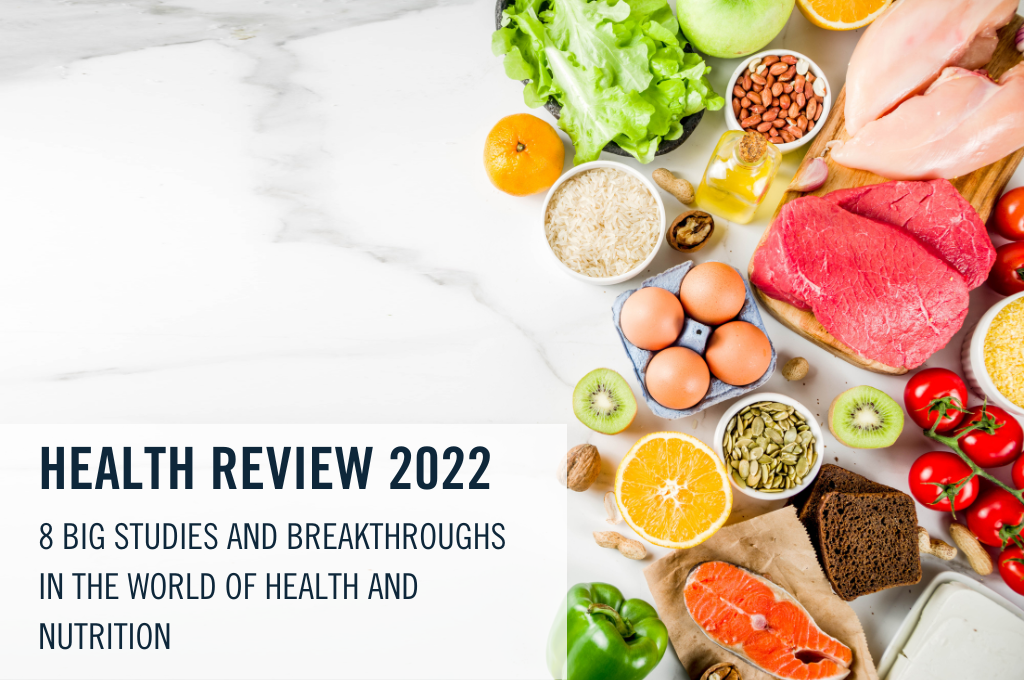Taking Vitamin D This Winter
30th November 2022 / Health / News
Taking Vitamin D This Winter
Jessica S

As the days get shorter and we spend more time inside, we should start to think about our vitamin D levels.
Vitamin D deficiency in winter months is super common, but the symptoms often go unnoticed. Dismissed as feeling rubbish because of "change in the season." One study shows that in northern European countries, 73% of the population suffered from deficiency levels of below 50 nmol/L) (1).
Even vitamin D insufficiency rather than deficiency can make you feel worse. Symptoms can include feeling fatigued, experiencing low moods, muscle and joint pains, and low libido. Again, feeling rubbish because of "change in the season."
But would a vitamin D supplement solve this? Well, there are myths about alternative sources of vitamin D.
Can you get it from food? Not quite.
Some foods contain vitamin D. The best source is oily fish, especially the ones where you eat the bones, as well as sardines and anchovies. Eggs are often cited as another source of vitamin D, but they don't have enough to make a noticeable difference.
Mushrooms are also a source, but mushrooms contain the less effective D2 form. Vitamin D3 is what you need.
Vitamin D can be found in fortified foods such as cereals, yoghurts, milk and juice. But, again, D2 is often used rather than D3.
In short, you need the active component vitamin D3, found only in animal products, to maintain your vitamin D levels during the winter. D2 does very little.
If you spend enough time outside, you can get enough in winter. Not in northern Europe.
The primary source of Vitamin D is production via our skin. This is fine for some during the summer, as you can get your daily vitamin D dose in less than an hour. However, if you have darker skin, wear sunscreen and/or cover up more of your skin with clothes, then vitamin D production will reduce.
With fewer daylight hours, weaker rays from the midday sun, and every one covering up to keep warm, many will not naturally get enough vitamin D during the winter.
It is risky to take supplements because you can take too much and suffer toxicity. Myth.
There have been reports of the relative few going overboard and taking mega-dose supplements. You will have to take an incredible amount of vitamin D supplements over an extended time to experience such toxicity. The majority of supplements are nowhere near a dangerous potency.
What do I need? 400 i.u.? 1000 i.u.? 3000-4000 i.u.? It's complicated.
The UK government's advice aims to prevent deficiency, defined as blood levels below 50 nmol/l. Their recommendation is a relatively low dose of 400 i.u.
However, insufficiency is where you may experience adverse symptoms. This threshold was set at 75 nmol/l. Nutritionists like myself would recommend 1000 i.u. per day, which is the level at which you find many good quality supplements.
Optimal levels may be considered at between 125 -150 nmol/l, especially if you suffer from autoimmunity. To achieve this, you may consider taking a supplement of between 2000- 3000 i.u. This is well within safe upper limits.
4000 i.u. of Vitamin D per day is considered the safe upper limit.
Taking a daily vitamin D supplement could be the simplest, most effective way to improve your daily and long-term health this winter.
Reference
From The Blog
-

22nd December 2022 / Health / News
New Year Resolutions You Can Actually Keep
New Year resolutions to shed unhealthy habits and create healthy new ones are always popular. Often expectations are high, but January is when our systems can have the least in the tank leading to...
Read article -

28th November 2022 / Health / News
8 Big Health Discoveries of 2022
Health Review 2022 One of the things we love about nutrition is that it is an evolving area of science with great discoveries happening all the time. We can apply these to our everyday lives in th...
Read article -

26th September 2022 / Health / News
Artificial sweeteners are more likely to be harmful to your health
A large-scale study of over 100 thousand people over a 12 year period published in the BMJ has shown that artificial sweeteners have strong and probable causal links to heart (cardiovascular) disea...
Read article



